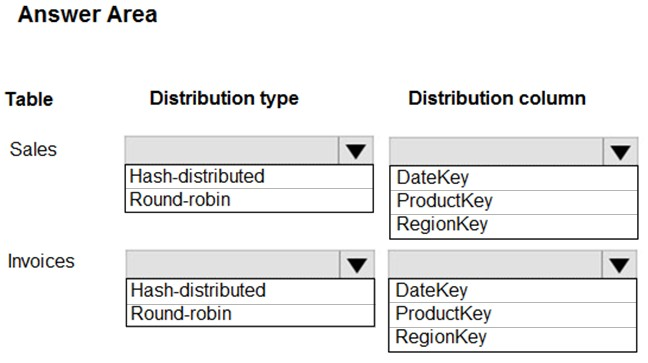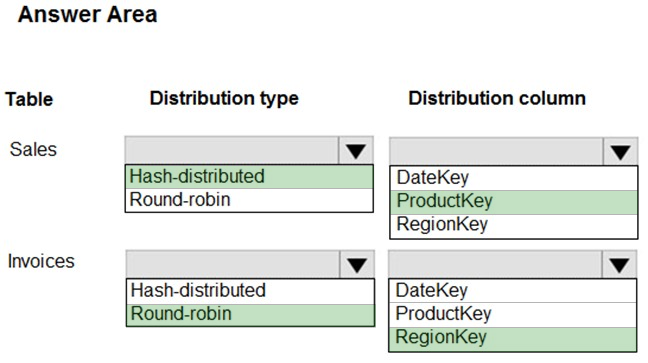

HOTSPOT -
You have an on-premises data warehouse that includes the following fact tables. Both tables have the following columns: DataKey, ProductKey, RegionKey.
There are 120 unique product keys and 65 unique region keys.
Queries that use the data warehouse take a long time to complete.
You plan to migrate the solution to use Azure Synapse Analytics. You need to ensure that the Azure-based solution optimizes query performance and minimizes processing skew.
What should you recommend? To answer, select the appropriate options in the answer area.
NOTE: Each correct selection is worth one point.
Hot Area:

H_S
Highly Voted 4 years, 2 months agocadio30
Highly Voted 4 years agoQrm_1972
Most Recent 3 years, 12 months agoSrinivasR
4 years agoNarenG1
4 years agoDataDani
4 years agoGeo_Barros
4 years, 2 months agoMariekumi
4 years, 2 months agoJohnCrawford
4 years, 1 month agoakram786
4 years, 2 months ago